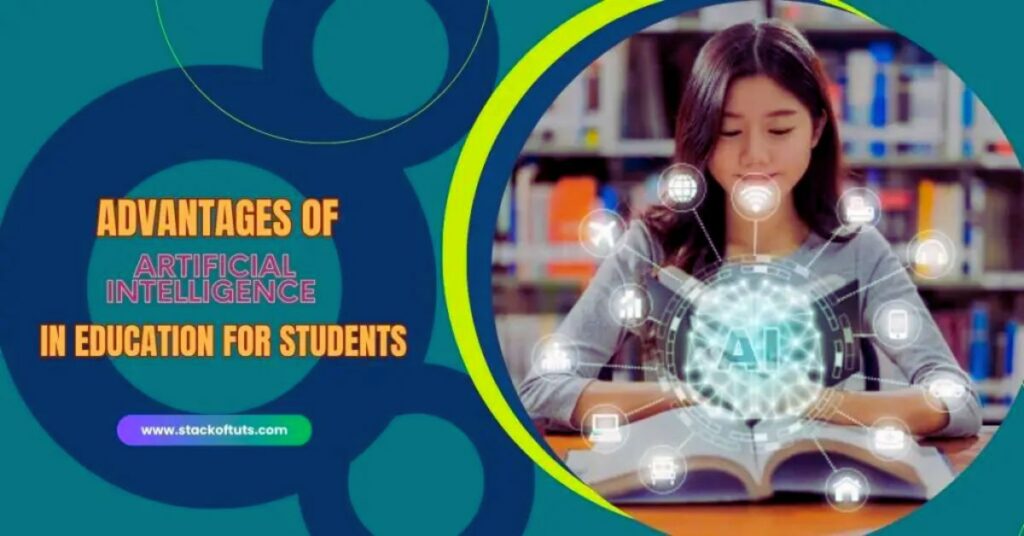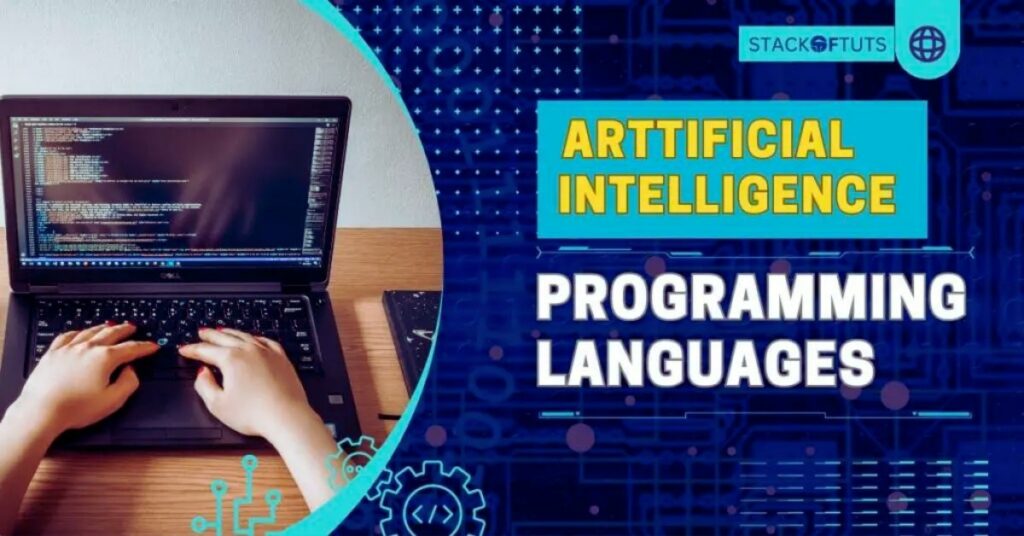
In education, artificial intelligence is not just a buzzword but a catalyst for transformative learning experiences. Teachers become orchestrators of a digitally enhanced curriculum, where AI tools help to identify student needs and tailor instruction accordingly. From automating administrative tasks to providing real-time insights into student performance, the use of artificial intelligence in education is vast and ever-evolving. Ready to witness how AI is reshaping learning paradigms? Explore more now about the uses of artificial intelligence in education and everything you need to know to stay ahead of this digital revolution.
Examples of artificial intelligence in teaching and learning

AI is revolutionizing the realm of education, making personalized learning not just a buzzword but a reality. From smart content creation to AI tutors that adapt to individual learning paces, the landscape of teaching and learning is undergoing an unprecedented transformation. Discover how these intelligent systems are not just supporting educators but also offering students a highly tailored educational journey:
- Intelligent tutoring systems that provide one-on-one instruction
- AI-driven data analysis for personalized learning experiences
- Smart content creation tools for customized educational material
- Virtual reality (VR) classrooms that bring immersive learning to life
If you want to know in clear detail, delve into our comprehensive guide showcasing ”Examples of artificial intelligence in teaching and learning”
Examples of artificial intelligence in education

In today’s digital era, education is undergoing a transformative shift, with artificial intelligence (AI) at the helm. These innovations not only streamline administrative tasks but also revolutionize learning experiences. Intrigued?
- Personalized Learning Paths: AI tailors lessons to fit each student’s needs.
- Smart Content Creation: Custom textbooks and study guides are generated instantly.
- Automated Grading: Swift, unbiased assessment results
- Tutor Bots: 24/7 assistance to clarify doubts
- Predictive Analysis: Foreseeing students’ academic challenges before they arise
“If you’re eager to explore the transformative role of tech in classrooms and beyond, dive into our comprehensive guide brimming with examples of artificial intelligence in education.
Uses of ai in education 2023

Elevating education through the lens of AI in 2023 will see a revolution in learning landscapes. Unleash the transformative power of AI in the realm of education, where traditional boundaries are redefined and potentials are unlocked.
Dive into an ecosystem where intelligent algorithms personalize learning, streamline administrative duties, and foster an environment ripe for academic excellence.
Discover the pivotal uses of AI in today’s educational sphere:
- Personalized learning experiences
- Automated Grading Systems
- Intelligent Tutoring Systems
- Enhanced Classroom Interactions
- Data-Driven Insights for Curriculum Development
- Virtual Reality for Immersive Learning Environments
- AI-powered language learning tools
- Predictive Analytics for Student Performance Tracking
- Chatbots for Student Support and Engagement
- Advanced Research through AI-assisted Data Analysis
If you want to know in clear detail, read this comprehensive exploration of the transformative ‘Uses of AI in Education 2023’ and discover how technology is reshaping learning.
Advantages of ai in education for students

AI is revolutionizing learning in the field of education by providing students with a unique, personalized experience. Imagine a classroom where AI unlocks each learner’s potential, adapting in real-time to their needs. Dive into the future with us as we explore the compelling advantages of AI in education for students:
- Personalised Learning Paths: AI algorithms curate customized content, pacing, and learning styles to fit each student’s unique needs.
- Enhanced Engagement: Interactive AI tutors provide immediate feedback, keeping students engaged and on track.
- Efficient Assessment: Instant, accurate grading systems allow teachers to focus on instruction rather than paperwork.
- Round-the-Clock Assistance: Chatbots and virtual assistants offer 24/7 help to students, breaking the barriers of time and location.
- Data-Driven Insights: AI’s deep analysis helps in identifying trends and predicting learning outcomes, ensuring students receive the support they need to excel.
If you want to know in clear detail, read on to discover the compelling advantages of AI in education for students.
Artificial Intelligence for students with disabilities

Artificial intelligence (AI) is breaking down barriers in education, offering special facilities to support students with disabilities. These advances are helping to level the playing field, enabling a more inclusive learning environment where every student has the opportunity to thrive.
Writing Assistance:
- Voice-to-Text Technology: Allows students with motor impairments to write using their voice.
- Predictive Text Software: Suggests words, reducing the physical strain for students with limited mobility or dexterity.
Listening and Hearing Support:
- Speech-to-Text Applications: Converts spoken language into readable text for students who are deaf or hard of hearing.
- Assistive Listening Devices: Amplify the teacher’s voice directly into hearing aids, minimising background noise.
- Visual Alerts: It converts audio signals into visual ones, alerting students with hearing impairments to important sounds.
Understanding and Comprehension Aid:
- Text-to-Speech Tools: Read out text for students with dyslexia or visual impairments, improving comprehension.
- Interactive and multisensory educational software engages different senses, aiding learning for students with cognitive challenges.
- AI Tutors: Provide personalised explanations and adapt to the unique learning pace of each student.
If you want to know in clear detail how Artificial Intelligence can revolutionize learning for students with disabilities, delve into our comprehensive guide
Best AI Chatbots for Student Help

Embark on a journey where learning never sleeps, thanks to AI chatbots—the tireless digital assistants revolutionising student support. These savvy AI companions are at the forefront, providing 24/7 help, answering queries, and facilitating a smoother educational journey. Are you interested in how they’re changing the game?
Top-Performing AI Chatbots in Education:
- Duolingo’s Chatbots: Offers interactive language practise anytime.
- Jill Watson from Georgia Tech handles course-related FAQs with ease.
If you want to know in clear detail, read this comprehensive guide to the Best AI Chatbots for Student Help—your ultimate academic assistant!
Top 10 AI-powered tools for literature

Immerse yourself in the world of literature like never before with the top 10 AI-powered tools! These innovative solutions are revolutionising the way students interact with, understand, and appreciate literary works.
How AI Tools Benefit Students in Literature:
- Deep Text Analysis: Extract themes, motifs, and symbols effortlessly.
- Personalised Reading Lists: AI curates based on personal interests and academic requirements.
- Interactive Character Maps: Understand intricate character relationships with a click.
- Automated Essay Feedback: Instant, constructive feedback on literary essays
- Virtual Reality Storytelling: Experience stories in immersive environments.
- Voice-activated summaries: Get concise summaries of classic and modern works.
- Sentiment Analysis: Gauge the mood of any literary piece.
- Predictive Text: Helps in writing assignments and understanding context.
- Bibliography Generators: Automated, accurate, and citation-ready
- Literary Chatbots: Discuss and ask questions about any literary topic at any time.
If you want to know in clear detail about the cutting-edge resources transforming reading and writing, explore our exclusive guide on the ‘Top 10 AI-powered Tools for Literature‘ and revolutionize the way you engage with the written word!
10 best AI-free tools for literature

Unveil the top 10 AI-powered free tools that are revolutionising the realm of literature. These sophisticated platforms not only enhance the study and appreciation of classic and contemporary works but also empower students to delve deeper and comprehend intricate narratives with ease. Eager to discover their literary prowess?
Services Offered by Free AI Tools in Literature:
- Text Analysis: Decoding complex passages for better understanding
- Predictive Typing: Assisting in seamless essay and story writing
- Content Summarization: Extracting key themes and motifs from dense texts
- Historical Contextualization: Relating literature to historical events
- Language Translation: Bridging linguistic barriers for diverse literature access
Know in clear detail about the 10 best AI-free tools for literature enthusiasts, designed to elevate your reading and writing journey without a hint of artificial interference!
Top AI Tools to Empower Your Academic Research

AI tools are revolutionising the academic research landscape, offering scholars an unparalleled edge. These cutting-edge resources assist in navigating the vast ocean of data, providing clarity and precision to your studies. With their help, researchers can now effortlessly organize references, ensure the originality of their work, and glean insightful analytics to bolster their findings.
Know in clear detail the top AI tools to empower your academic research and unlock a world of innovative learning possibilities!
What is the most common language used for writing artificial intelligence?

Delve into the realm of Artificial Intelligence and uncover the most widely adopted language that fuels its core. This language not only propels AI’s capabilities but also shapes the future of digital innovations. Eager to decode this language’s potency?
Why This Language Stands Out in AI:
- Flexibility & Scalability: Adapts to various AI models and scales seamlessly.
- Rich Libraries & Frameworks: Speeds up AI development and research.
- Community Support: A vast global network aids in troubleshooting and refining.
- Interoperability: Works in harmony with other languages, boosting integration.
If you’re eager to know in clear detail, “What is the most common language used for writing artificial intelligence?” Unlock the secrets of AI development with our expert insights.
12 best AI audio tools in 2023, free download

Overall, AI audio tools can be used for a wide variety of purposes, from creative projects to business applications. With so many free tools available, there is no excuse not to try out AI audio and see how it can benefit you.
Harness the power of sound with 2023’s elite AI audio tools designed for creators and professionals alike:
- Music Production: Innovate your music with AI, using tools like LANDR for instant mastering and Mubert to craft royalty-free tracks.
- Podcast Production: Revolutionize your podcasting with Descript’s text-based editing or Otter’s seamless transcriptions.
- Video Editing: Enhance your videos with Krisp’s noise reduction capabilities and LALAL.AI’s vocal/instrument separation.
- Educational Content: Transform learning with Speechify’s text-to-speech features and streamline audio edits with AudioTrimmer.
- Business Productivity: Boost workplace efficiency with Listnr’s transcription services and AudioConverter for versatile audio file conversions.
Unlock the full potential of sound editing with our insider’s look at the “12 best AI audio tools in 2023, free to download”—your definitive resource for high-quality audio manipulation!
Machine learning vs. AI: which is better?

The debate of machine learning vs. AI is not just about comparing technologies; it’s about paving the way for innovation. Unravel the distinct layers that set them apart and understand which one leads the race in technological supremacy. Each has its prowess; discover which is the game-changer for your digital pursuits.
Machine Learning vs. AI: The Defining Differences
| Aspect | Machine Learning (ML) | Artificial Intelligence (AI) |
| Definition | A subset of AI is focused on the ability of machines to learn from data. | A broad concept of machines being able to carry out tasks intelligently |
| Goal | To learn and make predictions or decisions without being explicitly programmed to perform the task. | To simulate any intellectual task that a human being can do. |
| Learning | Requires data to improve over time. | Not all AI requires data for learning; it can be rule-based too. |
| Functionality | Often limited to one specific task or problem. | Encompasses a wide range of cognitive functions. |
| Development | Involves training models using large sets of data. | It involves programming software to exhibit traits of human intelligence. |
| Adaptability | Adapts to new data independently. | May or may not have the ability to adapt or learn. |
| Usage Examples | Predictive text and recommendation systems. | Self-driving cars, virtual assistants, and comprehensive customer support |
If you want to know in clear detail about ‘Machine Learning vs. AI: Which is Better?‘ read this comprehensive comparison to get the insights you need!